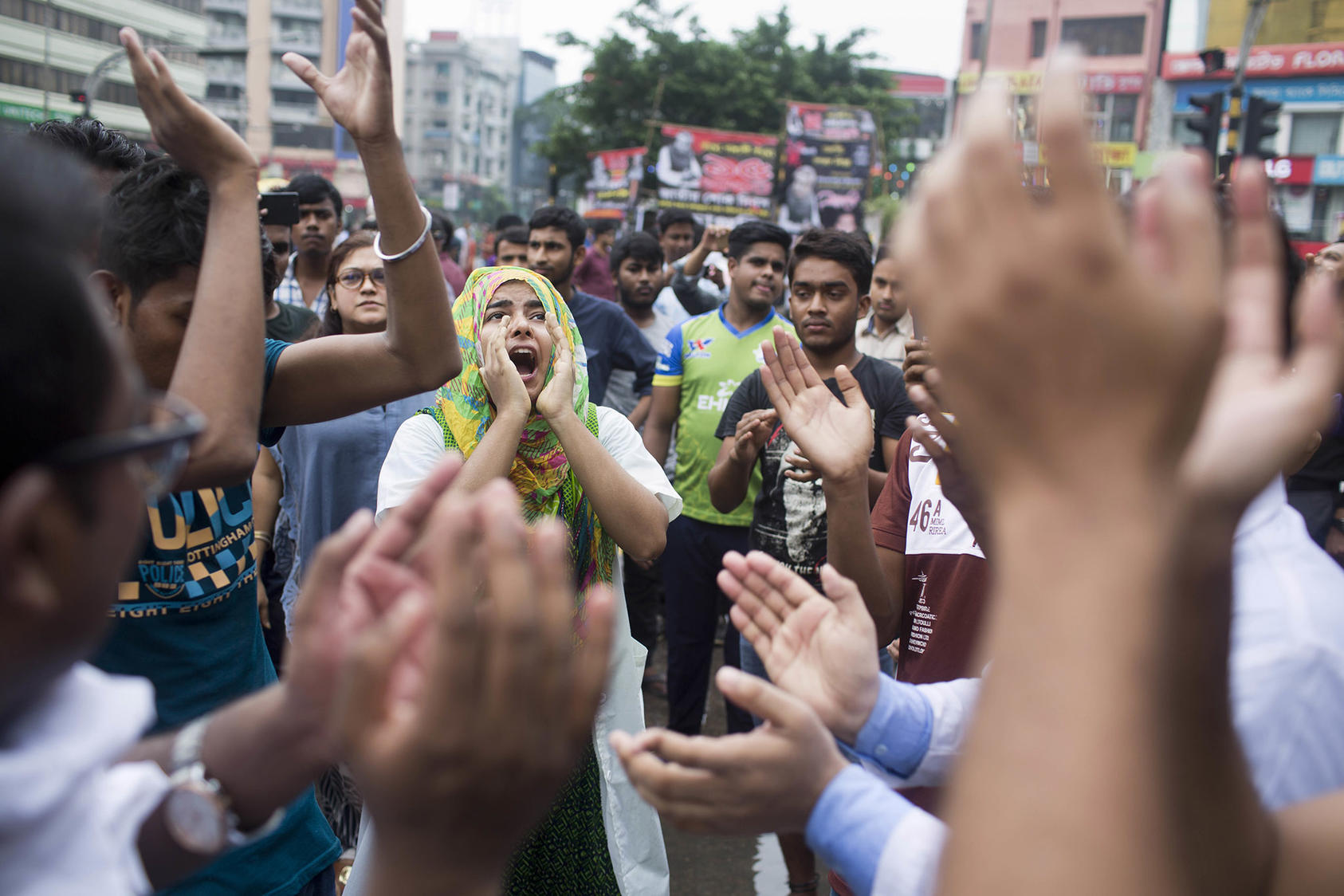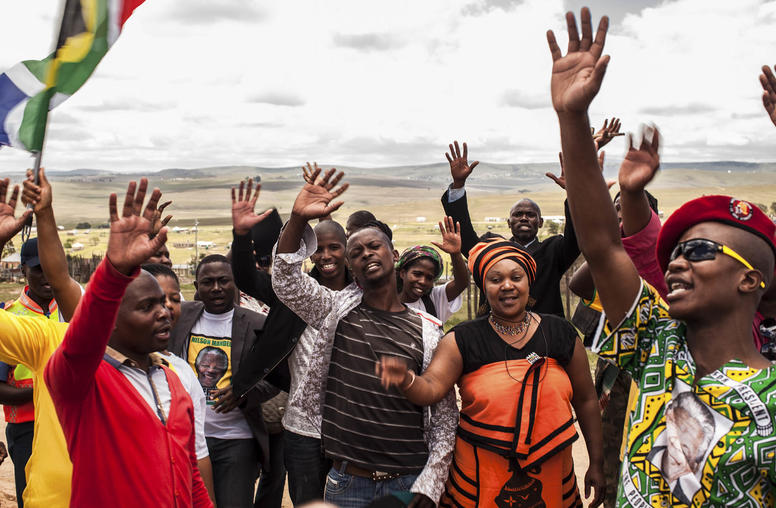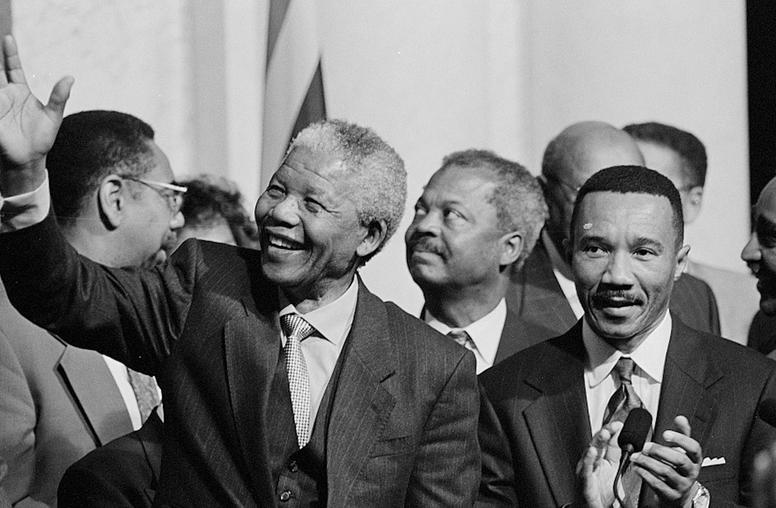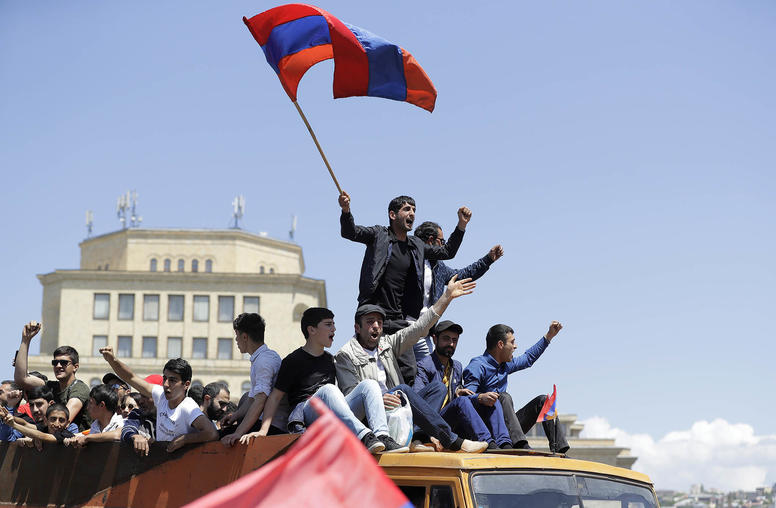Precarity and Power: Reflections on Women and Youth in Nonviolent Action
Examples abound of women and youth on the front lines of recent nonviolent action campaigns—from Alaa Salah leading demonstrators in Sudan in 2019 to the thousands of young people marching against the coup in Myanmar in early 2021. Yet significant social, cultural, and economic barriers can prevent both women and youth from participating in nonviolent action. This report, based in part on firsthand reports from activists in seven diverse countries, sheds light on these barriers and makes concrete recommendations for maximizing the impact of women and youth in nonviolent action.

Summary
Women and youth have played crucial roles at the forefront of nonviolent action campaigns for peace, democracy, and social justice. The mobilization of both groups is frequently decisive in the success of a movement. Yet the common barriers to their participation, as well as the related impacts and long-term outcomes of their participation across contexts, remain poorly understood. How do women and youth activists themselves experience such barriers, impacts, and outcomes?
A series of case studies commissioned from seven frontline female and youth activists in Armenia, Bangladesh, Ethiopia, Kenya, Myanmar, Nigeria, and Venezuela provides a diversity of contexts and perspectives on these questions. The activists’ reflections revealed several common patterns in the general experiences of women and youth across contexts. Major barriers included disproportionate state violence (particularly toward women), cultural norms against active political participation by women and youth, and economic precarity. Women and youth were nonetheless typically at the forefront of movements even when their participation came at high personal and social cost.
Women and youth participation had numerous positive impacts—in particular, increased tactical creativity and commitment to continuing activism even in the face of significant challenges, greater nonviolent discipline when threatened by violent provocation (especially for women), and a greater ability to mobilize across political or identity-based divides. This combination of factors made movements with significant female or youth participation particularly potent in mobilizing activists and achieving short-term goals. Yet long-term outcomes were mixed. In some cases, the participation led to greater social and political empowerment. In most, movements struggled to turn short-term mobilization into long-term change.
About the Report
This report examines trends in the impact of women and youth on nonviolent action campaigns, common barriers to their participation, and the long-term political outcomes of that participation. Based on research by frontline activists in Armenia, Bangladesh, Ethiopia, Kenya, Myanmar, Nigeria, and Venezuela, it was funded through an interagency agreement between the United States Institute of Peace (USIP) and the Center for Democracy, Human Rights, and Governance at the United States Agency for International Development.
About the Authors
Jonathan Pinckney is a senior researcher at USIP and the author of From Dissent to Democracy: The Promise and Peril of Civil Resistance Transitions. Miranda Rivers is a program specialist at USIP, where she conducts applied research on and supports training and education for social movements working to advance justice and build sustainable peace.



